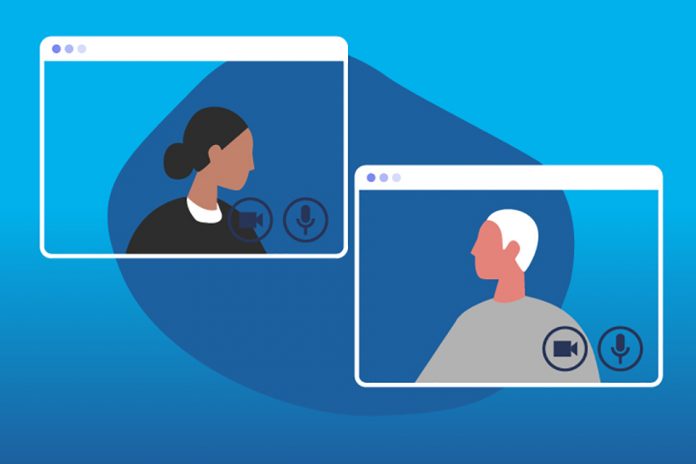- over 90,000 calls made so far, connecting families in the UK and overseas
- technology helped teenager communicate again with his deaf mother and allowed a prisoner to meet his baby for the first time
Secure video calls are now running in all public and private prisons and young offender institutions (YOIs) across England and Wales, helping to maintain vital family ties and boost rehabilitation during the Coronavirus pandemic.
Offenders with strong family ties are less likely to reoffend, which costs the taxpayer around £18 billion per year, while 97% of prisoners say that video calls have a positive impact on their mental health.
With the final installation of video call technology taking place last month, in just over 6 months, over 90,000 video calls have been made totalling almost 45,000 hours and connecting families in more than 100 countries, while social visits were suspended to help reduce the spread of the virus, save lives and protect the NHS.
The secure video calls are allowing prisoners to see their toddlers take their first steps, say goodbye to a terminally-ill loved one and helping those struggling with their mental health.
Prisons Minister Lucy Frazer QC MP said:
Video calls have been a huge success in our response to COVID-19 in the prison estate, with staff and offenders overwhelmingly positive about the impact of the technology.
Prisoners have seen drastic changes to their daily routines to save lives and to protect local health services. Part of that has been the loss of social visits – something we know plays a huge role in prisoners’ wellbeing and rehabilitation and these calls are allowing them to keep this vital family contact.
The video calls take place on secure laptops in a designated area in each prison. Safeguards are in place to prevent misuse with all participants checked in advance, calls are monitored by prison staff and restrictions have been built into the software to ensure safe use.
Graham Barrett, Governor at HMP Wandsworth said:
Video calls have been an incredibly positive step forward in what has been a very difficult time. It has revolutionised the way that people can communicate with loved ones and having such a user- friendly service has ensured that the men in our care can keep in touch with family and friends all over the world.
A Prisoner at HMP Thorn Cross said:
It has been a complete game-changer for me. I can’t imagine not seeing my children for the past nine months, so the peace of mind of knowing that they are ok, and for them to see me and know that I am ok has really helped all of us.
My family do not live locally, so I would like to continue to use video calling to speak to them, even after visits and ROTL are running again.
The new technology builds on the 2017 Lord Farmer review which found that close bonds between prisoners and family members can significantly reduce their risk of reoffending.
Plans are being implemented for the long-term. In the meantime, video calls remain in place for prisoners and their loved-ones while social visits are restricted.
Notes to editors
- Video calls are a complementary resource to help maintain family contact not a replacement for social visits and where face-to-face visits can safely be delivered and remain the preference, no prisoner will be asked to substitute that for a video call.
- Time-limited calls are made either by prisoners making a call request to their designated contact or by families who can request a time slot through a mobile app or directly with the establishment.
- In March the government introduced temporary restrictions in prisons to prevent the virus taking hold – a decision that has saved the lives of staff, prisoners and children in custody, and protected the NHS.
- These measures, backed by Public Health England, included:
- Creating distinct areas where vulnerable prisoners can shield, the symptomatic can isolate, and new arrivals can quarantine
- Creating an additional 1,200 temporary cells so people are better able to social distance and we can limit the spread of infection
- Making important adjustments to prison life – including placing prisoners in social ‘bubbles’ so they could safely spend more time out of their cells for vital education, work, and exercise
- We are further bolstering our defences to reduce the risk of transmission by:
- Temporarily stopping social visits for adult prisoners in line with the new national restrictions. However, visits for compassionate reasons, visits to children in custody and official or legal visits will continue.
- Introducing routine testing of frontline staff and prisoners who arrive from court or transfer from other jails to catch infections earlier.
- Making more Personal Protective Equipment available to staff who come into close contact with offenders, so they can protect themselves and the offenders in their care.







